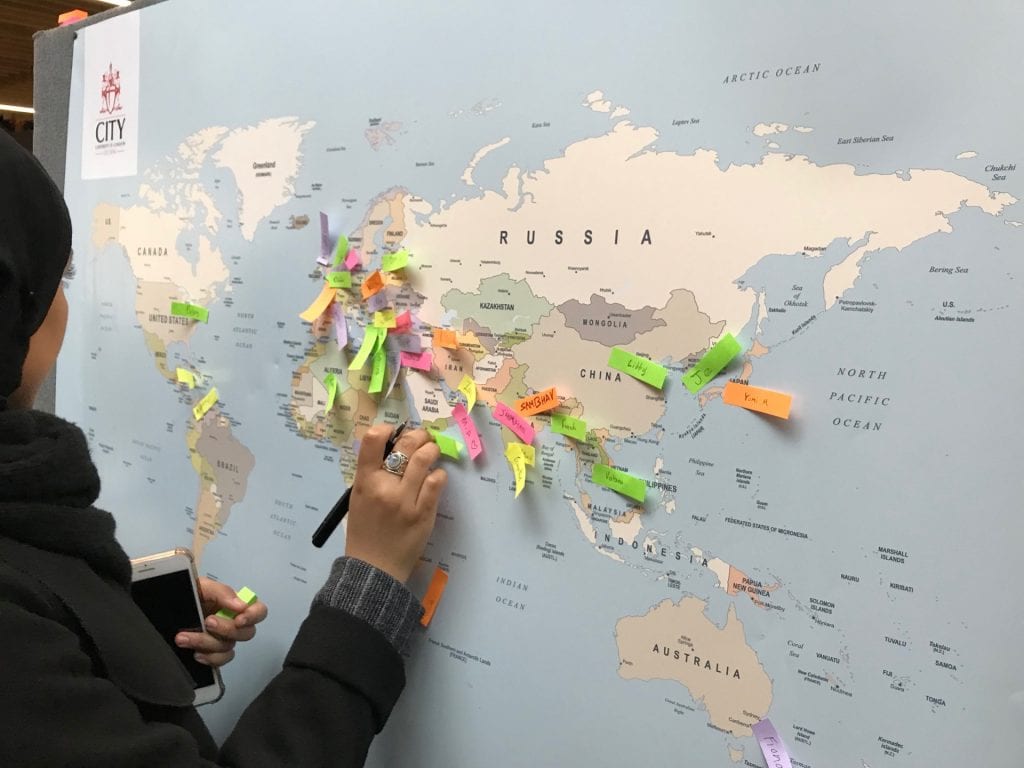International students are deeply embedded in City, University of London’s culture and lifestyle. The University’s work and that of the Students Union never stops to amaze me of the number of events and types of activities they offer to the student body.
As a student ambassador, representative and a blogger, I am constantly a witness of how much focus and attention is spent on a daily basis to the student. From surveys that will help improve student and tutor relationships to mentor schemes created to ease each student into coping with assignment anxiety or finding and preparing for an internship.
We are also regularly provided with karaoke, movie and pub quiz nights at City Bar, located in Tait Building ground floor.
This week, from Monday 18th February to Friday 22nd February, different departments cooperated to create the first-ever International City Week. It aimed to celebrate the global community and bring staff and students together with a number of different activities across campus.
More than 20 events were scattered throughout the whole week to take yet another step back and to really appreciate everything that is good about how diversified City, University of London is.
The launch of International City Week 2019 was simply incredible. It was colourful, loud and tasty. You could munch on tasty finger food from around the world and socialise with peers.
To make it easier for you, you could take part in the networking bingo and later win a redeemable voucher.
If you are not particularly interested in finding somebody who knows how to make dumplings or practices martial arts, you could sit on the couch with a slice of pizza in hand and listen to the amazing City’s own Balkan Ensemble.
Or even better, get up and dance in the melody of Serbian and Romanian songs and learn the art of the “horo” dance.
It was amazing to see how many people wanted to locate themselves on a giant map, and most importantly to talk with each other, follow our journeys and realise that we are not as different as we may think.
We could also solve riddles and win chocolate when correctly match the fair-trade products to their place of origin. To get creative with 1-minute portraits and bring back the nostalgia answering City Psychology Society’s question: “What makes you feel at home”, was a true gem.
Talking about your national holidays, dancing and seeing the smile on people’s faces was nothing short to a magnificent way to start my week.






